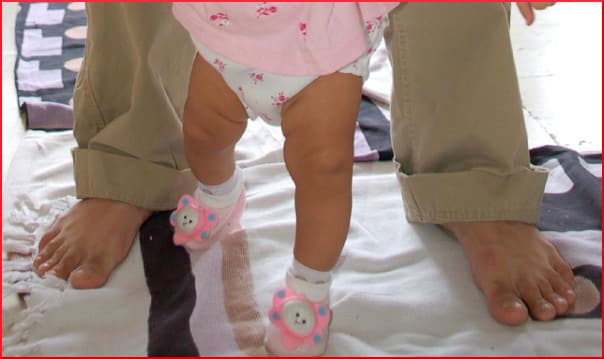
Every day, the links between psychological kinks and obesity become more clear. Much of what goes on in the body starts in the brain, the presumed seat of consciousness, and also if the subconscious mind that can powerfully influence our physical lives. This has everything to do with baby steps, one of the important topics in the Childhood Obesity News series of collected, curated tips for parents. Incrementalism is the strategy of the nonviolent winner.
Children have two separate and competing drives. A child wants to please his or her parent/s, and be rewarded with attention and maybe even affection. At the same time, a child wants to defy his or her parent/s, to earn feelings of autonomy and self-esteem. But a well-intentioned grownup can work around this by being as crafty as an ill-intentioned one.
To deal with mutually exclusive impulses requires finesse. A constructively sneaky parent will not make a big push with “things you ought to strive for and do.” Because push causes pushback.
A skillful parent will employ stealth and gradualism. Sometimes, with a behavior considered important for a child to learn, a parent will pretend that it doesn’t even matter. When an adult does something often, but without fanfare, or any noticeable emphasis, it makes a special kind of impression on the parts of a child’s mind that are still malleable.
“Habits have profound effects,” says Dr. Kristopher Kaliebe, quoted in our previous post as saying, “Don’t stress over the occasional special treat, but be strict about everyday routines.” He recommends three main rules, all of which are eminently teachable by example.
One is to get up and move. Another is to honor silence. In other words, stop filling up every minute of the day with clamorous announcements, sales pitches, propaganda downloads, enticements, and ear-beatings from the media.
Eat food and exercise patience
The third of Dr. Kaliebe’s rules is to eat food, rather than strange concoctions that pose as food. The more natural, unprocessed, and raw, the better. This is an area where baby steps are essential.
Why? Because the average child needs 12 exposures to a new food before acclimating to it. Karen LeBillon revealed this in her book French Kids Eat Anything, which bears the promising subtitle, “How our family moved to France, cured picky eating, banned snacking, and discovered 10 simple rules for raising happy, healthy eaters.”
Journalist Jennifer Sygo describes the gist:
In the French system, children are introduced at a very young age — as soon as they are eating solid food — to complex flavours and foods many of us wouldn’t dream of giving to children. As a result, [LeBillon] tells stories of nine month-olds who squeal with delight at the sight of blue cheese, toddlers who enjoy paté, and schoolkids who eat all manner of fish and vegetables. This isn’t an accident…
Children should be expected to try a little bit of everything that is served, while the parents bear in mind that acceptance might take a dozen or more tries. Le Billon discourages use of the term “picky eater.”
Proper food consumption can be learned just like any other skill, and therefore she prefers to describe the child as a “learning eater.” Snacks are limited to one, in the afternoon (in Europe they eat dinner late). Other advice includes parents taking responsibility to be in charge of meal times, with no nonsense like “short-order cooking” for a recalcitrant child.
Your responses and feedback are welcome!
Source: “Rules of thumb: Three simple ideas for overcoming childhood obesity,” ScienceDaily.com, 05/01/14
Source: “Jennifer Sygo: Teach your child to eat like the French,” NationalPost.com, 10/22/14
Photo credit: Radhika Bhagwat on Visualhunt/CC BY-SA

 FAQs and Media Requests:
FAQs and Media Requests: 











